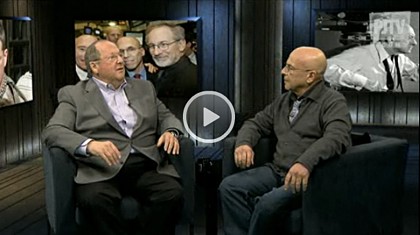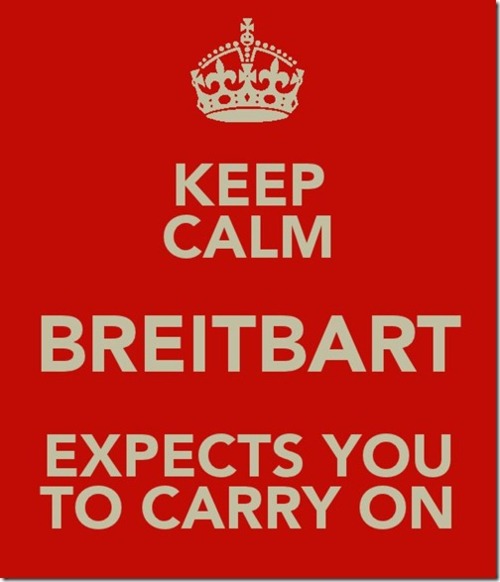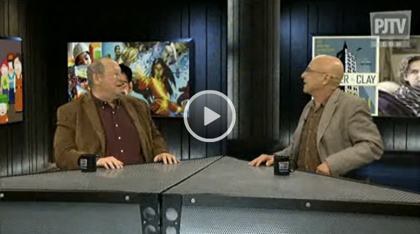This, which I ran across on Twitter the other day, is a profound insight, that has more than earned a permalinked spot on my Quotes page. I have witnessed its demonstration in no uncertain terms, watching absurd nonsense that we failed to reject clearly enough, and perhaps laughed off with the assumption that it would simply go away, instead become set in stone as a foregone cultural assumption. The assertion that someone else’s hurt feelings or fragile sensibilities should trump your right to speak freely and honestly. The notion of a “right” to “free” healthcare, of a “fair share” of what another has labored to earn. The exactly inverted idea that capitalism enslaves but the state somehow liberates. “Progressive” used as a casual synonym for actual, desirable progress. All of it nonsense that must be stridently fought, and all of it now what you and I are naturally assumed to believe.
This is an apt reminder of the price we will pay in the future for ignoring such absurdities now, for not taking them seriously enough to mount a decisive counter-offensive:
The uncontested absurdities of today are the accepted slogans of tomorrow. They come to be accepted by degrees, by precedent, by implication, by erosion, by default, by dint of constant pressure on one side and constant retreat on the other — until the day when they are suddenly declared to be the country’s official ideology.
— Ayn Rand ∞
In reflecting on the untimely loss of Andrew Breitbart, it occurred to me that I should finally get around to reading Righteous Indignation, Andrew’s last book-form message (though I’m sure he didn’t expect or intend it to be his last) to those of us who’ve found that the same things that ate at him day and night, through the nonstop news cycle, keep us awake at night and worrying for our culture too.
Breitbart’s message, and the story of his pioneering work from the early days of Internet news reporting to the present, are inspirational. But at the moment, something else has really seized my attention. Barely two chapters in, I’ve found myself rather floored by an unexpected number of similarities between Andrew’s adolescence and my own: Andrew grew up in Brentwood; I grew up in West L.A., a stone’s throw away. He’s only a couple of years my senior, so we were there at about the same time, and experienced the same culture. We both started out as “default liberals”, vaguely motivated by a similar, culturally cultivated (and reinforced by the friends we had) mis-perception that the political Right was all about being stodgy old mean meanies who aspire to tell other people what to do. (Andrew cited his “natural disdain for the religious right, which had been the ultimate 1980s-era bogeyman”. Funny, we must have been informed by the same media narrative.) Later in life, we each came into contact with new ideas, began educating and informing ourselves without really having the benefit of guidance from (nor the company of) similarly inclined peers, and as a result moved first to libertarian, then to libertarian/“conservative” positions, only to find ourselves relatively alone in our cultural surroundings. We were both fortunate to have incredibly generous and patient parents who let us find our own paths, hanging in there even when we must have seemed all but hopelessly lost in our wanderings in search of self. My family was down-to-earth in a not-so-down-to-earth town. We largely took simple road-trip vacations. I knew Dad had voted for Reagan, but we almost never discussed politics at the dinner table. Same for Andrew on all counts. Andrew waited tables for a time; I earned my spending money working for caterers. We listened to some of the same music. We both spent time in Westwood. Both were frequent and enthusiastic movie-goers who, later in life, would become disillusioned and estranged by Hollywood’s growing cynicism, anti-Americanism, and political left turn. After college, Andrew worked for a movie production company up until the disillusionment hit him. Before college, I’d had thoughts about going into movie production (special effects for futuristic sci-fi movies were of particular interest to me), but now, years later, I’m glad that I didn’t attempt to make my career in a culture that’s become so deeply hostile to my kind. Some of the other places I’ve been have been unfriendly enough as it is.
Hell, Andrew’s family rented their motor home to John Ritter. Why, a close friend of mine used to babysit for John Ritter!
Can’t avoid saying it: Small world.
There are, of course, also plenty of differences between our early paths in life. Andrew’s college experience, which he describes as drinking his way aimlessly through Tulane and surrounding New Orleans for four years, wasn’t much at all like my own. After nearly dropping out of L.A. public high school because I hated it so damn much, then spending four years alternately working, taking UCLA Extension night classes, and doing some self-teaching in the UCLA physics library, I went to college late, but with a focus, drive, and sense of purpose that many of my classmates lacked. Where Andrew chose, under duress at the 11th hour and for lack of a more compelling option, to major in American Studies, I set out to major in physics from day one, and did everything I could to avoid distractions from my physics and supporting math work, taking courses in other departments only when required, or because I needed some less demanding classes to balance the science-work-heavy course load to which I wanted to devote my best efforts. With few exceptions, I did everything but party while I was in school. (I confess to spending some of my parents’ hard-earned tuition dollars taking a West African drumming class. I couldn’t help it. It was the lure of the Feynman mystique.)
Andrew’s awakening and the beginnings of his transformation began much earlier. Compared to him, I’ve been an embarrassingly slow learner. I lived my adolescence pretty oblivious to anything beyond the mainstream narrative that surrounded me (Democrats good, Republicans bad, though I did like that optimistic Reagan fellow, and assumed that everyone else really, at the end of the day, surely must like him and believe in America the way he did, too). A visit to a gloomy Czechoslovakia in 1985, followed by the fall of the Berlin Wall and collapse of the Soviet Union, made strong impressions on me, but I never imagined that the inherent evil of Communism was in any doubt at all to my fellow Americans. We all knew too much about the totalitarian abuses, mediocrity, shortages, and twisted, humanity-crushing culture of fear and suspicion and nonsense it produced, right?
College was where the cognitive dissonance, and perception of a world gone wrong, really began to set in for me. Focused as my coursework was on hard science, I didn’t experience the nihilism of the contemporary humanities mindset at full strength as Andrew did (thankfully), but I saw enough going on around me to begin taking notice — from pedantic PC multicultural pandering and genuflection that, while at times eyeroll-inducing, seemed more or less harmless at first, to the totem pole of designated victim groups, to a classmate in the thrall of an absurd “post-modern” anti-rationalist philosophy that denied the existence of any objective knowledge and wrote off the entirety of scientific achievement through the ages as a “social construct” of “white European males” that we had designed, you know, to help us oppress women and minorities, to the banner celebrating Cuban communist thug Che Guevara on my girlfriend’s roommate’s wall. I began to ask myself: What the … ? How did this happen? I had been sleeping.
The funny thing is, I remember very distinctly having this feeling walking home from elementary school one day (that’s “grade school” to most of the world outside of L.A., I’ve gathered): I remember thinking about how I didn’t much like subjects such as history, that demanded lots of burdensome memorization. I preferred to stick to topics like math, where one could reason out the answers from a few logical and easily memorized foundational principles instead of having to labor to commit a great deal of loosely relatable knowledge to rote memory. And I remember being perfectly aware, even as I had the thought, that deciding to avoid the study of history to satisfy such mental laziness was not a winning proposition, for that was how we would surely end up repeating the same mistakes. I knew that worse stuff had come before, and was still happening in the world outside the bubble of freedom and prosperity that I lived in, and that by having that kind of thought I was taking the America I was so lucky to inhabit for granted and might well regret it someday. But I also assumed a sort of “end of history” future, where Freedom would of course prevail and, inexorably, expand and spread its light in dark corners to liberate more and more people across the globe. I didn’t expect life to actually call me on my lack of studious appreciation. If anyone then had tried to forewarn me of the battle I’d end up fighting as an adult — for, as Andrew described it, the “soul” of my culture — I’d have laughed them off as plainly insane. Fears of nuclear armaggeddon aside, none of the culture I took for granted seemed to be fundamentally in jeopardy.
It was only after college that I really started to move, gradually, to the right of center. I knew something was wrong with the cultural self-recrimination and cynical attitudes I had encountered, but I had no awareness of similar thinking outside my own until after 9/11, when I eventually (not until a couple of years after 9/11, if I recall correctly) stumbled upon Instapundit and, through Glenn’s blog, The Drudge Report, Steven Den Beste’s “USS Clueless”, Bill Whittle’s incomparable “Eject! Eject! Eject!”, and other center-right sites and blogs. Excepting the Paul Harvey morning broadcast that my Dad and I had always found amusing while waiting in our parked car for my school bus to pick me up when I was 13 or 14, I had no awareness of talk radio until I started listening to the Instapundit and Pajamas Media podcasts sometime around 2006, I think — eventually learning about Breitbart and what he was doing as part of that. As I said: slow learner.
None of this should be construed in any way as delusions of Breitbartian grandeur. Like the thousands of kindred spirits he so inspired that they enthusiastically declared “#IAmAndrewBreitbart” in Andrew’s defense, when the news of his passing brought forth torrents of Breitbart-hating Twiter vitriol of the very sort that Andrew was known for gleefully retweeting, I feel humbled by his achievements and moral courage — a courage to enter the fray for the sake of what matters, vilification by his bitter detractors be damned, that I can only hope and aspire to find and cultivate in myself. Yet I also feel struck by the notion that, but for the tweaking of a few details here and there, it’s not all that far fetched to imagine that each of us could easily have ended up going down the other’s path, living the other’s life. Maybe that’s overstating it. But I’m feeling a more personal connection to the man’s life and experiences than I was expecting to, and it’s caught me a little off guard, and made me deeply sorry that I didn’t have the chance to meet Andrew and get to know him that others did. What I knew of Andrew through his work had me intrigued and inspired me as it was. Now I fully expect to be glued to this book for a stop-for-nothing straight-through read.
Speaking of Breitbart, and of Instapundit, this is apropos and poignant: Breitbart is Here: The Video.
I’ve also found it heartening to see this around:
Will Hollywood change the political overtones of its creative products, in response to the 2010 Midterm Election results? Another very interesting and relevant Poliwood conversation with Roger L. Simon and Lionel Chetwynd on PJTV (9 min. video):

My prediction: Not a chance; the bulk of Hollywood’s creative and producer class seems too deeply entrenched and calcified to temper its sneering condescension toward Middle America (a.k.a. “Flyover Country”). Which should make the future very interesting, as alternative production companies like Declaration Entertainment potentially seize the opportunity to serve pent-up popular demand for America-positive content that formerly mainstream Hollywood seems content to leave unrequited.
Then again… Every time I feel I’m about to completely give up on Hollywood’s relationship with America, I seem to be greeted with one last glimmer of hope. Re-watching the spectacularly well done Iron Man followed by Iron Man 2 recently, I was delighted all over again by Robert Downey Jr.’s pitch-perfect portrayal of an unapologetic American inventor-entrepreneur-capitalist-hero-patriot. You see something beautiful, inspiring, and celebratory like that and can’t help but wonder, “Why not more like this?” But there it is nonetheless, even if it stands comparatively alone among recent movies, reminding us that there are still at least a few people in Hollywood who really get it about who we are and why many of us are so rightly proud of it.
Perhaps, as Simon and Chetwynd seem to conclude, the book isn’t closed on Hollywood just yet. It will be interesting indeed to see what comes out of Hollywood over the next few years, as ideas entering the production pipeline now start to reach audiences.
To Be Continued … ?
UPDATE 2010-11-25 (Happy Thanksgiving!): An interesting related article on the Washington Times website: “Hollywood Ending not in script for ‘Elites’”
In last year’s Independence Day post, I offered a playlist of my favorite Liberty-themed songs. This year, it’s going to be a brief, issue-focused post for me, as what I want most is to direct readers’ attention to a very important but uncertain new initiative:
Bill Whittle, PJTV commentator who first gained admiration and notoriety for his brilliant and eminently worthwhile “Silent America” Essays, has chosen July 4th, 2010 to launch “Declaration Entertainment”. By all means, watch this 4½-minute welcome video that explains what it’s all about:
See Bill’s 3-minute “Pioneers” video for more.
Pipe dream? Perhaps. Can it work? I honestly don’t know. But Bill has a plan, and he’s doing something, and while I hold out great hope that his idea will succeed tremendously, I greatly admire his initiative independent of the result. Because to me, this really matters.
Many of us have watched with increasing despair over the years, as the Hollywood we thought we knew growing up — one whose craft once promoted and unabashedly celebrated classically American values such as optimism, confidence, self-reliance, entrepreneurship, and heroism (including the heroism of American soldiers who risked everything fighting for the freedom of others) — has gradually transformed into the preeminent domestic broadcaster of anti-Americanism, social criticism, ambivalence, nihilism, and ennui. From the content it now produces to the invective its glitterati deliver from the pulpits of self-congratulatory awards ceremonies, Hollywood has mainstreamed the culture of shame, cynicism, social criticism, and self-loathing that was once largely the preoccupation of a small, bitter niche of radical-left academia.
Those of us who’ve felt this despair have realized that today’s Hollywood does not speak for us, our values, or our outlook. We’ve felt helpless to do anything but stop buying a product that routinely insults and vilifies us. Yet, for reasons that Declaration Entertainment’s introductory video explains, this strategy of passive withdrawal exerts no significant economic influence on the content that a now internationally-funded Hollywood produces, for what has become first and foremost a worldwide audience. I believe we’ll learn that it’s not enough to economically reject repellent content and its Hollywood creators. We ultimately need to find other ways of getting our own movies made, of producing and promoting alternative content that positively reflects our values and confidence in our culture.
Remember when School House Rock distilled the essence of the American Idea into educational and genuinely celebratory Saturday morning shorts such as “No More Kings”, “The Shot Heard Round the World”, “Elbow Room”, “The Preamble”, “Sufferin’ ‘til Suffrage”, and “Fireworks”? Watch them again (or most anything else of that era), with the eyes of 2010, and think long and hard about the tremendous change that’s occurred in our popular culture. Can you imagine educational shorts like these being produced and broadcast today? Why not? Would you ever, back in those days, have predicted such a transformation of attitudes?
It’s not supposed to be like this.
We have a choice.
If we care enough, we can usher in a new Renaissance of the American Idea.
Bill’s ambitious plan for “Declaration Entertainment” could, I sincerely hope, be the start of that.
Remember when we believed in us:
ps – Now that I’ve thoroughly depressed you: Go enjoy some uplifting music!










